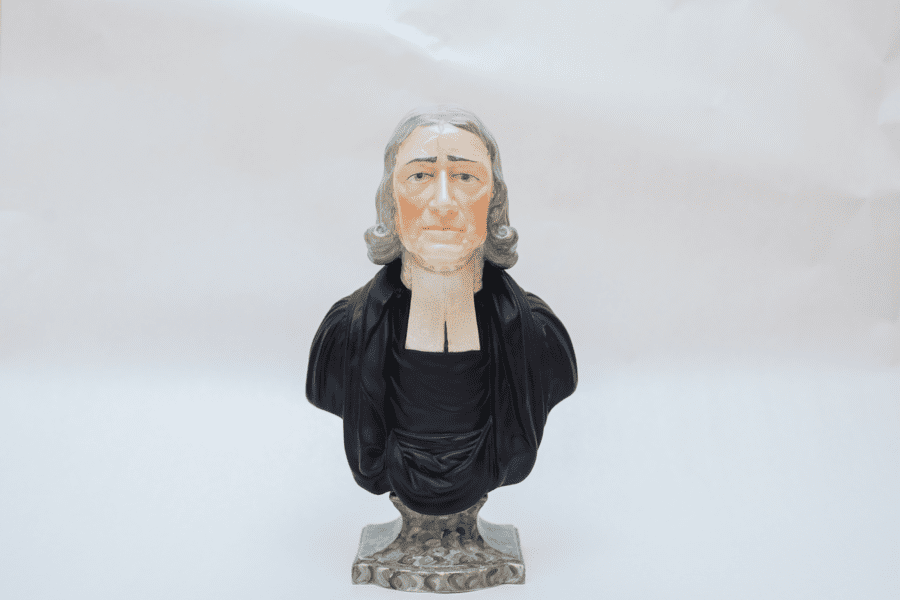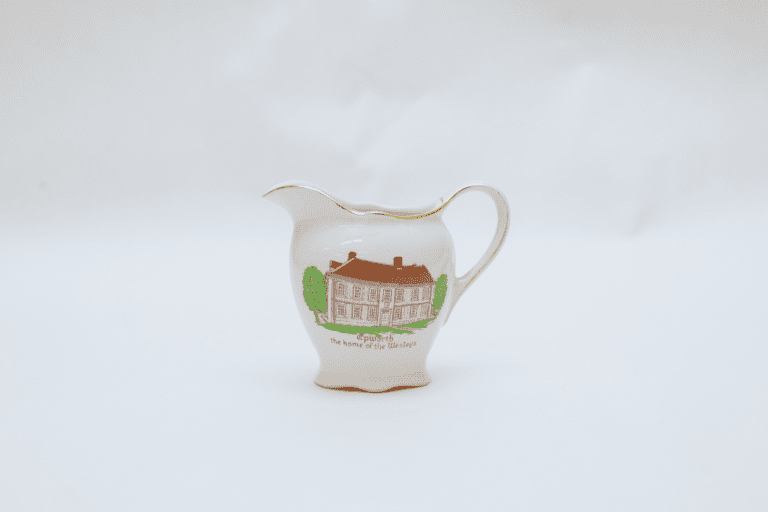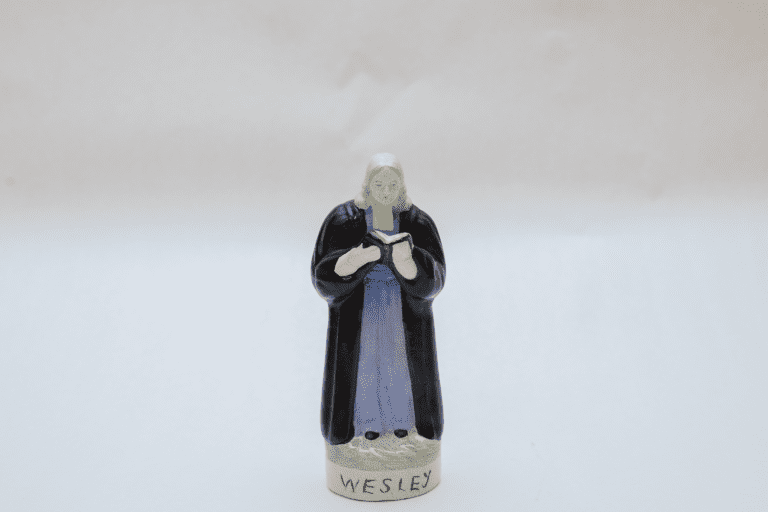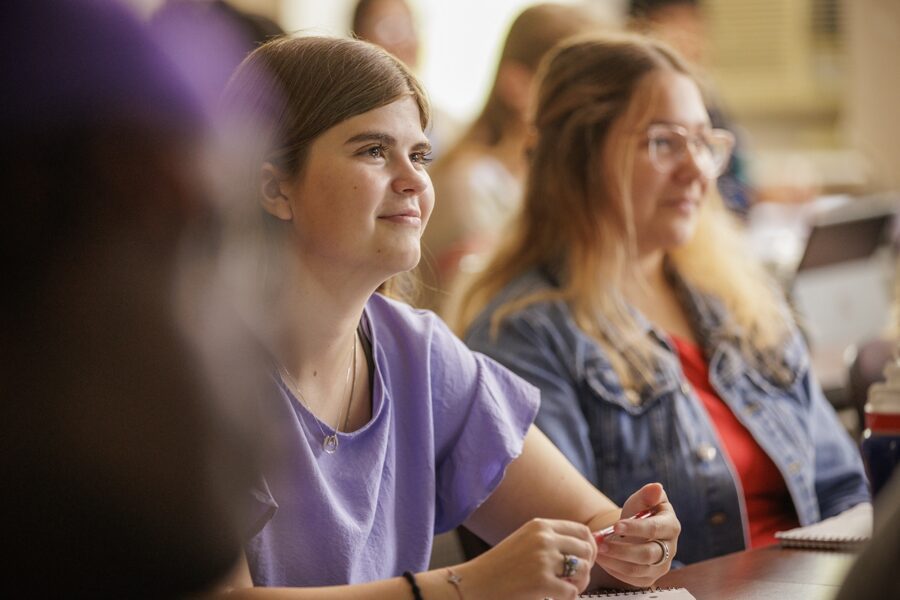
Historians don’t simply study old texts. Often, it’s the material culture — the artifacts — of a time and place that show how people lived and how their ideas developed. In the basement of Benner Library at Olivet, a unique collection of hundreds of artifacts from the earliest days of the Methodist movement are helping shed new light on how the first followers of John Wesley understood themselves and their religious identity.
When Dr. John and Jill Bowling purchased the collection of Wesleyan memorabilia in 2005 that Dr. Herbert McGonigle of Nazarene Theological College (Manchester, England) had built up over his long career, they gifted to Olivet a world-class collection and a window into the beginnings of the holiness movement in England. Visitors to Olivet’s campus may notice pieces from the collection on display in the Centennial Chapel foyer, but few realize these are simply the tip of the iceberg of the collection’s nearly 300 pieces, which include some of the first pottery busts of John Wesley as well as plates, cups, teapots and figurines.
English pottery from the region of Staffordshire became important in the Wesleyan movement as it spread in the late 1700s, Dr. Kyle Robinson, assistant professor of European history, explains. Pottery that bore images of Wesley and other leaders from the movement or verses or inspirational sayings was a means by which poor or lower-middle-class families signified their nonconforming religious affiliation in their homes. In some ways, Robinson points out, it was the household equivalent to wearing a WWJD bracelet: a way to let visitors to a home know the kind of Christianity practiced there. The pieces indicated a family associated itself with Wesley and Methodism instead of the traditional teachings of the Church of England. Because of this, the collection provides clues about how Methodists understood themselves during the movement’s first generations, especially as Methodism spread amongst the pottery workers themselves.
The 283 unique pieces that form the McGonigle collection compose one of only a handful of similar collections in the United States. Emmanuel College (Toronto), Duke University and Drew University have similar collections, but Robinson explains that it’s impossible to compare them effectively because no collection is fully catalogued. This means there is important work to be done, sophomore history major Bryson Doering points out. Dr. Robinson and Bryson, who plans to go into museum studies, are working from the basement of the library, taking pictures and careful measurements of each piece, with the intention of hosting a searchable database that will allow Olivet’s collection to be accessed by experts around the world.
Though only 40% of the collection has been catalogued so far, some of the collection’s unique contributions to holiness history are already clear. Whereas other collections in the United States were built up of pieces intended for export to America, the McGonigle collection was assembled in England of pieces intended for domestic consumption. The collection is especially strong in pieces focused on primitive Methodist history, the version of Wesley’s movement that spread among the working classes, including the potters themselves. Dr. Robinson is particularly interested in studying how the depictions of Wesley himself, who sat for a likeness taken by the famous potter Enoch Wood in 1784, evolved over time.
There’s another interesting wrinkle to the collection, Bryson says. His favorite piece from the collection is a jardiniere, or ornate planter, commemorating the 100th anniversary of the first Methodist camp meeting in England. Camp meetings, Bryson explains, were invented when Methodism came to America and only later crossed back to England, where many people — and the British government itself — considered them illegal gatherings. The 1907 jardiniere shows how, within a century, these potentially seditious gatherings had become part of a heritage celebrated on elaborate pottery — the movement’s humble origins becoming enshrined in consumer culture.
An exhibition from the collection last year in Olivet’s Victorian House Gallery featured 54 of the objects, including its earliest piece, a bust of Wesley from the 1790s, and highlighted how Methodism grew and changed in its early years. That the collection is still not fully catalogued keeps Robinson excited about the work.
“We still have so much to learn about how early Methodists viewed themselves and how that changed over time as Wesley’s outsider movement became more respectable,” he says.
Olivet has long been a place for studying holiness history. The McGonigle collection makes this history come alive in a new way.
To learn more about the Department of History & Political Science at Olivet, contact the Office of Admissions at admissions@olivet.edu or 800-648-1463.
Photo Citations:
- Wood, Enoch. Portrait Bust of John Wesley. c. 1791. Glazed Earthenware. Wood and Caldwell Pottery Works, Fountain Place, Burslem, UK. 13″x7.25″. ONU, Wesley Collections [2005190].
- Epworth Cream Jug. c. 1929-1979. Glazed Earthenware. Royal Winton, Grimwades Limited, Stoke-on-Trent, UK. 3.5″x4.5″. ONU Wesley Collections [2005140].
- Statuette of John Wesley. c. 1800-1850. Glazed Earthenware. Uknown Staffordshire Potteries, UK. 7″x2″. ONU, Wesley Collections [2005138].







